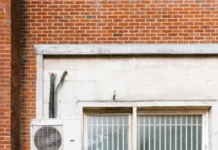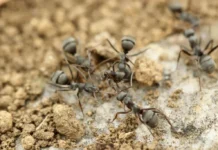Finding ants scurrying around your home or workplace can be incredibly exasperating. At first, it might seem harmless to spot a few ants wandering across the countertop. However, as time passes, you might find a steady stream of these little invaders determinedly marching back and forth, on the hunt for food or carrying supplies back to their nest. Ant infestations are a common occurrence in the UK, especially when the weather warms up. So, why do these insects decide to invade, and what can you do to stop them? In this article, we will explore the reasons behind ant invasions, signs of an infestation, and how professional pest control services can effectively eliminate these nuisances.
Understanding Why Ants Invade Your Space
Ants are ingenious creatures always on the lookout for food, water, and a safe place to stay. While most species prefer the great outdoors, they’ll venture inside when the conditions are just right. Here are some of the primary reasons they might invade:
Common Ant Species in the UK
Several species of ants can create issues in your home or business. The most prevalent include:
Identifying the species you’re dealing with can significantly influence the most effective control method, which is why a professional assessment is often necessary.
Signs That Indicate an Ant Infestation
While spotting a few ants doesn’t automatically mean you’ve got an infestation, there are specific signs that should prompt immediate action:
The earlier you address these signs, the simpler it will be to manage the issue.
The Pitfalls of DIY Ant Control
It’s tempting to grab sprays or traps from the store when you first notice ants. However, while these may eliminate some visible ants, they rarely tackle the root of the problem—the nest. Unless you address the queen and the entire colony, the infestation is likely to return. Ant colonies often hide in walls, beneath floors, or outside your property. Many species may even have multiple satellite nests. Without proper treatment, ants may simply relocate and come back later.
How Professional Pest Control Can Assist You
Engaging professional pest control offers a dependable, long-term solution to ant infestations. Here’s how they can help:
Preventing Future Ant Infestations
While professional treatment is the most effective way to handle an ongoing infestation, you can take measures to make your home less inviting to ants:
These simple changes can significantly reduce the chances of ants entering your space.
Seasonal Patterns of Ant Activity
In the UK, ant infestations tend to spike during the spring and summer months. As temperatures rise, colonies become more active and send out foragers in search of food. Warm, dry spells can drive ants indoors seeking moisture, while heavy rains may flood outdoor nests and force them to relocate inside. Being aware of these seasonal trends can help you stay ahead of potential infestations by ramping up preventive measures when the risk is higher.
When to Contact a Pest Control Expert
If you’ve tried DIY methods without success, or if you’re noticing a significant number of ants consistently, it’s time to reach out to a pest control professional. This is particularly vital for businesses that handle food, as ants can contaminate supplies and damage your reputation. Acting quickly not only resolves the current infestation but also lessens the chances of long-term structural damage or recurring issues.





















